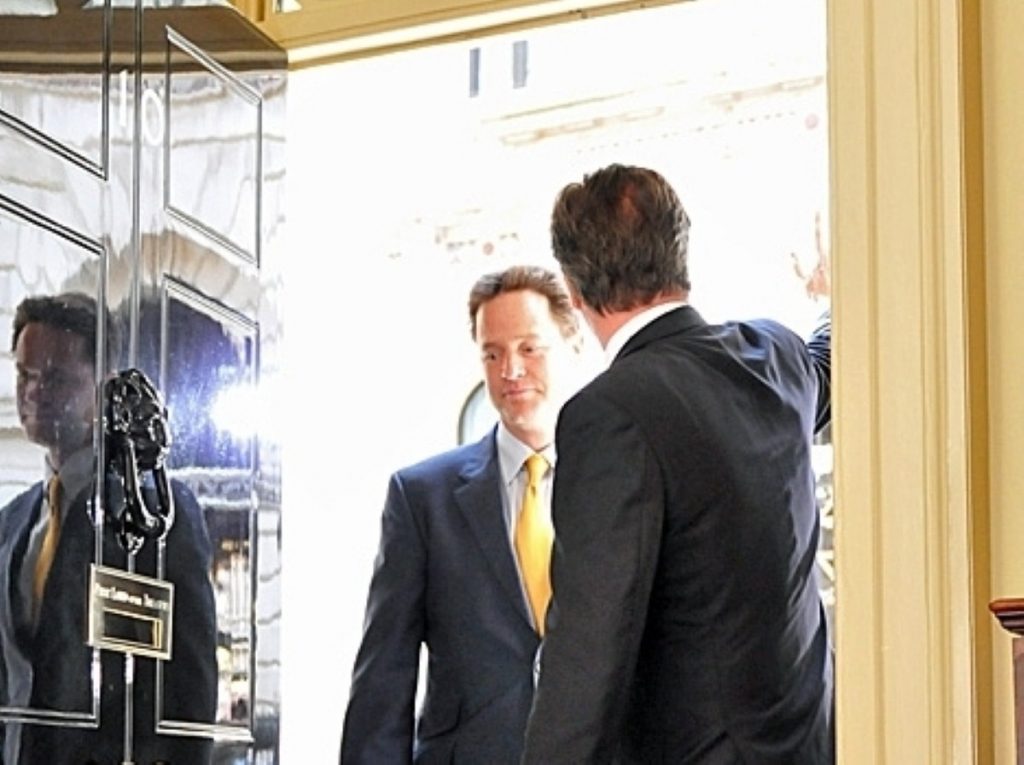Coalition brushes off foreign policy differences
By politics.co.uk staff
The coalition government has brushed off its internal contradictions on Europe during the first full day of debate on the Queen’s Speech.
The debate, on defence and foreign policy, threatened to reveal deeply-held splits on the topic of the EU between the Conservatives and the Liberal Democrats.
Tory MP Bill Cash asked William Hague, the new foreign secretary, whether a promised UK sovereignty bill would still be forthcoming.


“This is a coalition government and we have to discuss together, a way forward,” Mr Hague replied.
“The Conservative party was committed to that in its election, but this is a coalition government and we need to look at that with our partners.”
A separate European Union bill did find its way into the Queen’s Speech yesterday, with proposals ensuring any future transfer of powers to the European Union requires a referendum.
The traditionally Europhile Lib Dems will struggle to accept the bill, although the party had previously campaigned for a more holistic ‘in-or-out’ referendum on the EU, despite its pro-European credentials.
David Cameron was originally pushed into committing himself to a referendum on any future transfer of powers after the controversy which followed the ratification of the Lisbon treaty.
That process turned his pledge of a referendum on the treaty into an irrelevance. He quickly responded by promising a national vote on any future changes.
The move will have dampened hostility towards the Tory leadership from the party’s backbenches, which remain predominantly eurosceptic.
Mr Hague was unapologetic when defending the bill today.
“The EU’s standing in this country has fallen in recent years,” he said.
“The British public have felt they had too little democratic control.”
Shadow foreing secretary David Miliband went for the jugular, stressing the two parties policy differences throughout his response.
“The government goes into European negotiations with no policy on European defence; it is not mentioned in the coalition agreement; no policy on European energy – also not mentioned; and on justice and home affairs, all they can say is that they will review cases one by one; no principles, no plans,” he said.
“The reason is simple: they cannot agree on anything, and Britain is weak as a result.”
He continued: “The foreign secretary himself has called the Lib Dems ‘the most fanatically federalist party in Britain’. So when it comes to policy no wonder they cannot agree.”
While not intended as legislation, yesterday’s Queen’s Speech also demanded tougher action on Iran – a point Mr Cameron reiterated in his contribution to the debate in the Commons afterwards.
How far the two parties will be able to cooperate on such foreign policy matters remains uncertain, but the Tory foreign policy team of William Hague and Liam Fox are notably more hawkish than their Lib Dem counterparts.
Former Lib Dem leader Sir Menzies Campbell made two points which ran against the opinion of the foreign secretary.
“Our success in relation to a political settlement [in Afghanistan] rests upon the shoulders of President Karzai and the fact is until now he has not proved adequate in fulfilling this position,” he said.
In a seperate point, Sir Menzies highlighted the weakness of an independent UK strategy in the face of America’s dominant position in the Afghan mission
“We talk about our strategy but we are subordinate in our strategy to the United States,” he said.
“We should be cautious therefore in forming statregies that do not take account of the fact that the US position may be subject to very considerable domestic pressure.”












